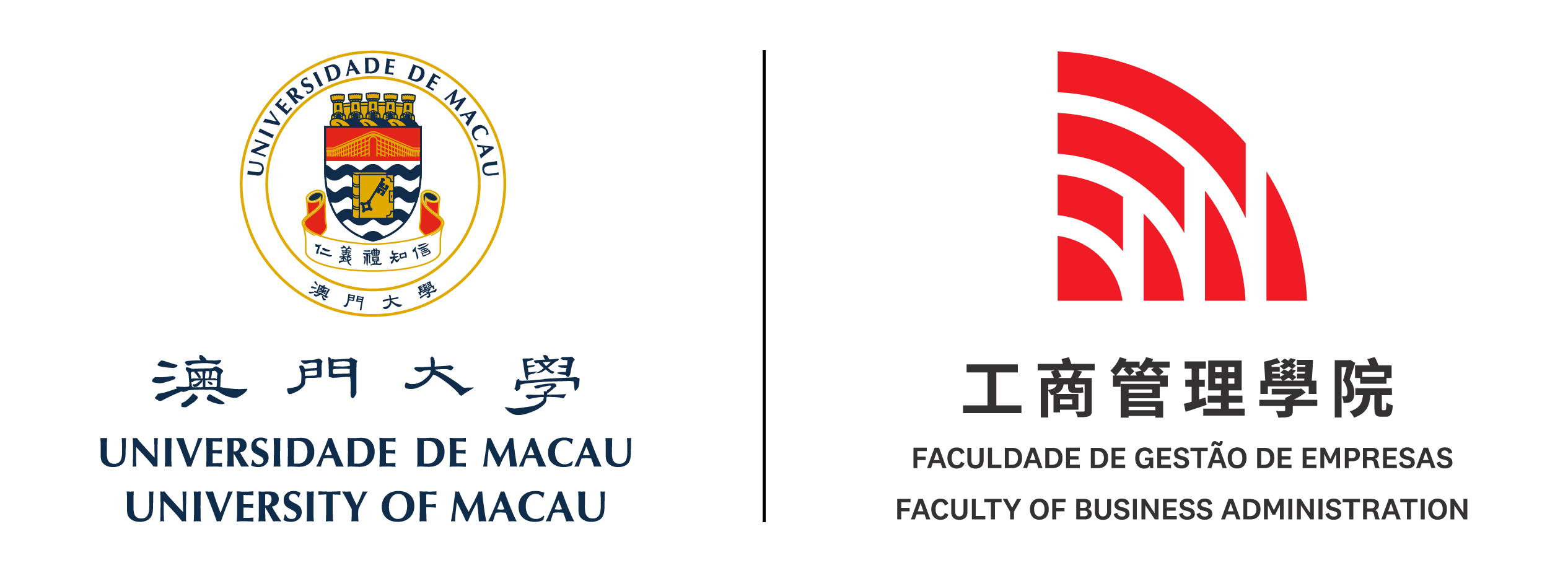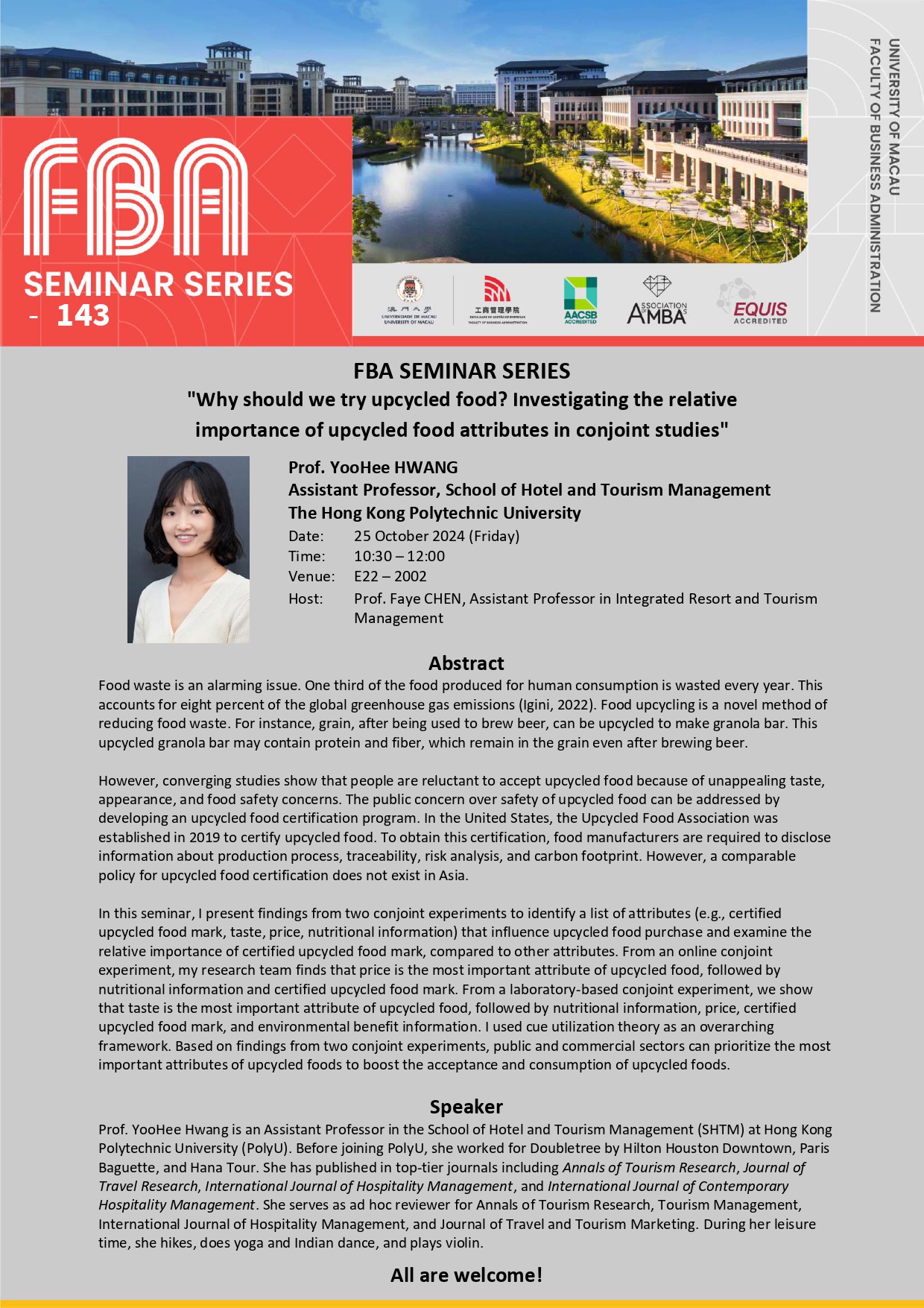Why should we try upcycled food? Investigating the relative importance of upcycled food attributes in conjoint studies
Prof. YooHee HWANG
Assistant Professor, School of Hotel and Tourism Management
The Hong Kong Polytechnic University
Date: 25 October 2024 (Friday)
Time: 10:30-12:00
Venue: E22-2002
Host: Prof. Faye CHEN, Assistant Professor in Integrated Resort and Tourism Management
Abstract
Food waste is an alarming issue. One third of the food produced for human consumption is wasted every year. This accounts for eight percent of the global greenhouse gas emissions (Igini, 2022). Food upcycling is a novel method of reducing food waste. For instance, grain, after being used to brew beer, can be upcycled to make granola bar. This upcycled granola bar may contain protein and fiber, which remain in the grain even after brewing beer.
However, converging studies show that people are reluctant to accept upcycled food because of unappealing taste, appearance, and food safety concerns. The public concern over safety of upcycled food can be addressed by developing an upcycled food certification program. In the United States, the Upcycled Food Association was established in 2019 to certify upcycled food. To obtain this certification, food manufacturers are required to disclose information about production process, traceability, risk analysis, and carbon footprint. However, a comparable policy for upcycled food certification does not exist in Asia.
In this seminar, I present findings from two conjoint experiments to identify a list of attributes (e.g., certified upcycled food mark, taste, price, nutritional information) that influence upcycled food purchase and examine the relative importance of certified upcycled food mark, compared to other attributes. From an online conjoint experiment, my research team finds that price is the most important attribute of upcycled food, followed by nutritional information and certified upcycled food mark. From a laboratory-based conjoint experiment, we show that taste is the most important attribute of upcycled food, followed by nutritional information, price, certified upcycled food mark, and environmental benefit information. I used cue utilization theory as an overarching framework. Based on findings from two conjoint experiments, public and commercial sectors can prioritize the most important attributes of upcycled foods to boost the acceptance and consumption of upcycled foods.
Speaker
Prof. YooHee Hwang is an Assistant Professor in the School of Hotel and Tourism Management (SHTM) at Hong Kong Polytechnic University (PolyU). Before joining PolyU, she worked for Doubletree by Hilton Houston Downtown, Paris Baguette, and Hana Tour. She has published in top-tier journals including Annals of Tourism Research, Journal of Travel Research, International Journal of Hospitality Management, and International Journal of Contemporary Hospitality Management. She serves as ad hoc reviewer for Annals of Tourism Research, Tourism Management, International Journal of Hospitality Management, and Journal of Travel and Tourism Marketing. During her leisure time, she hikes, does yoga and Indian dance, and plays violin.
All are welcome!


